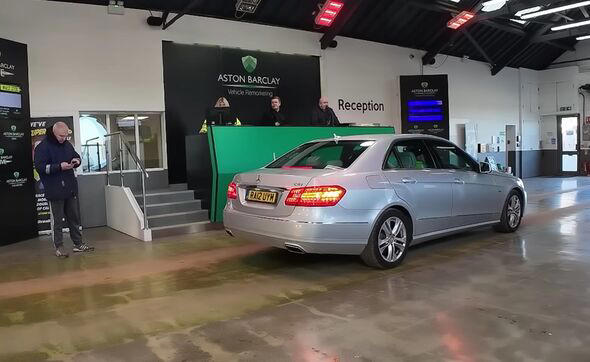Title: Understanding Didcot’s New Parking Scheme: What You Need to Know
Living in Didcot, Oxfordshire, just got a little more complicated with the introduction of a new parking scheme. The plan is to charge residents £70 a year for a permit to park outside their homes. Let’s break down what this means and why it’s causing a stir in the community.

Why the New Scheme?
The idea behind the scheme is to tackle the problem of parking congestion in residential areas. Didcot faces challenges, especially with visitors to its popular shopping center and train station taking up parking spaces meant for residents.
What’s the Deal with Controlled Parking Zones (CPZs)?
The new scheme establishes what’s known as a Controlled Parking Zone (CPZ). Essentially, residents need permits to park on the streets within this designated area. It’s not a new concept; you’ll find similar schemes in parts of London and other cities across the UK.
Residents’ Reaction
Understandably, not everyone is thrilled about this new scheme. Some residents see it as anti-car and just another way for authorities to grab money from car owners. They’re questioning why they should have to pay to park outside their own homes and worry about the financial burden it brings.
How Much Does It Cost?
Let’s talk numbers. Residents will have to fork out £70 per year for each vehicle they own, with exemptions for second vehicles if you’re 70 or older. There’s also provision for 50 days’ worth of Visitors’ Parking Permits over a year. The first 25 days are free, but after that, it’s £27.50 for the next set of 25.
Where Does the Money Go?
You might wonder what the council plans to do with all this permit money. According to them, it’s not about making a profit. Instead, they say the revenue will go towards enforcement measures to stop commuters and non-residents from hogging residential parking spots.
Looking to the Future
The scheme isn’t set in stone; it’s a response to potential future developments in Didcot. For example, there’s talk of replacing a temporary car park with residential units. If that happens, more commuters might end up parking on residential streets, prompting the need for a CPZ.
The Council’s Take
The council insists that CPZs are about prioritizing residents’ parking needs. They’re aware of the concerns and say they’re monitoring the situation closely. Any adjustments needed to make the scheme fairer or more effective will be considered.
In Conclusion
The new parking scheme in Didcot is a hot topic among residents. While it aims to address parking issues, many feel it’s a burden they shouldn’t have to bear. Whether it achieves its goals without overly inconveniencing residents remains to be seen.
Living in Didcot, Oxfordshire, just got a little more complicated with the introduction of a new parking scheme. The plan is to charge residents £70 a year for a permit to park outside their homes. Let’s break down what this means and why it’s causing a stir in the community.
Why the New Scheme?
The idea behind the scheme is to tackle the problem of parking congestion in residential areas. Didcot faces challenges, especially with visitors to its popular shopping center and train station taking up parking spaces meant for residents.
What’s the Deal with Controlled Parking Zones (CPZs)?
The new scheme establishes what’s known as a Controlled Parking Zone (CPZ). Essentially, residents need permits to park on the streets within this designated area. It’s not a new concept; you’ll find similar schemes in parts of London and other cities across the UK.
Residents’ Reaction
Understandably, not everyone is thrilled about this new scheme. Some residents see it as anti-car and just another way for authorities to grab money from car owners. They’re questioning why they should have to pay to park outside their own homes and worry about the financial burden it brings.
How Much Does It Cost?
Let’s talk numbers. Residents will have to fork out £70 per year for each vehicle they own, with exemptions for second vehicles if you’re 70 or older. There’s also provision for 50 days’ worth of Visitors’ Parking Permits over a year. The first 25 days are free, but after that, it’s £27.50 for the next set of 25.
Where Does the Money Go?
You might wonder what the council plans to do with all this permit money. According to them, it’s not about making a profit. Instead, they say the revenue will go towards enforcement measures to stop commuters and non-residents from hogging residential parking spots.
Looking to the Future
The scheme isn’t set in stone; it’s a response to potential future developments in Didcot. For example, there’s talk of replacing a temporary car park with residential units. If that happens, more commuters might end up parking on residential streets, prompting the need for a CPZ.
The Council’s Take
The council insists that CPZs are about prioritizing residents’ parking needs. They’re aware of the concerns and say they’re monitoring the situation closely. Any adjustments needed to make the scheme fairer or more effective will be considered.
In Conclusion
The new parking scheme in Didcot is a hot topic among residents. While it aims to address parking issues, many feel it’s a burden they shouldn’t have to bear. Whether it achieves its goals without overly inconveniencing residents remains to be seen.